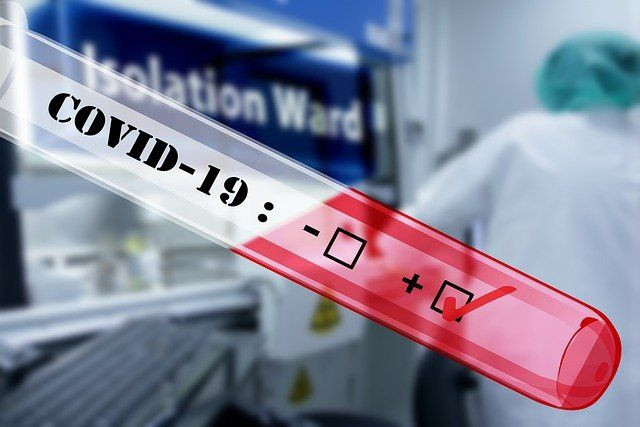As Another Phase 3 Trial Begins, Poll Suggests Voters Believe Trump Using Vaccine To Win Reelection
KEY POINTS
- A new poll found most likely voters believed Trump was trying to push out a coronavirus vaccine early to help his reelection campaign
- The number of people saying they would get inoculated early was down from a similar poll in July
- Trump has regularly contradicted independent and government health officials about when a potential coronavirus vaccine could be available
A new poll released Wednesday suggests that most voters believe President Donald Trump is trying to push out a coronavirus vaccine too quickly to help his reelection chances in November.
This belief is also reflected by the number of people saying they won’t get vaccinated should one becomes available ahead of the Nov. 3 general election.
The latest poll was conducted as part of the partnership between CNBC and Change Research between Friday and Sunday. About 3,000 likely voters from six swing states were polled and over 1,400 more likely voters were polled nationally.
According to the poll, 61% of likely voters nationally believed Trump was trying to get a potential coronavirus vaccine released sooner than it should be in the hopes of winning a second term. Similarly, 57% of likely voters in swing states Arizona, Florida, Michigan, Wisconsin, Pennsylvania, and North Carolina also believed Trump’s approach is driven by the election.
As a result, 52% of national voters and 46% of swing state voters said they were “very concerned” about the potential vaccine. Only 42% of likely national voters said they would be willing to get inoculated early, which is down from 58% in a July poll. It was the same with likely swing-state voters with only 30% saying they would get an early inoculation, down from 57% in July.
Rapid progress has been made in development of potential vaccines, with four currently in late-stage trials. Johnson & Johnson became the latest company to begin phase 3 trials on Wednesday. The company said trials will involve 60,000 adult volunteers at 215 locations across the U.S.
Volunteers will receive either a dose of the potential vaccine or a placebo and be monitored to judge the vaccine's efficiency. Johnson & Johnson chief scientific officer Paul Stoffels said it likely would take between six weeks and two months to complete the trials as the company wants to make the trial group as diverse as possible.
Moderna, Pfizer, and AstraZeneca also have potential vaccines in phase 3 trials.
“Four COVID-19 vaccine candidates are in phase 3 clinical testing in the United States just over eight months after SARS-CoV-2 was identified,” Dr. Anthony Fauci said in a press release. “This is an unprecedented feat for the scientific community made possible by decades of progress in vaccine technology and a coordinated, strategic approach across government, industry and academia.”
“It is likely that multiple COVID-19 vaccine regimens will be required to meet the global need. The Janssen candidate has showed promise in early-stage testing and may be especially useful in controlling the pandemic if shown to be protective after a single dose.”
Johnson & Johnson’s estimated time to complete the trial means it would not be ready in time for distribution before the November election.
A vaccine’s availability has been a point of contention for Trump since the pandemic first hit the U.S. in February. While many independent and government health officials said a vaccine likely wouldn’t be ready until some time after the election, Trump has regularly contradicted this by saying a vaccine could be ready by October.
This was a point he reiterated during a press briefing on Sept. 16 in response to Centers for Disease Control and Prevention Director Robert Redfield’s comments during a Senate hearing.
Redfield told the Senate the earliest a vaccine would be available is November or December, after the election and would take “six to nine months” to inoculate the whole U.S. population.
“We’re very close to that vaccine as you know and I think much closer than I think most people want to say,” Trump told reporters, saying Redfield’s comments to the Senate were incorrect. “We think we can start some time in October. So as soon as it’s announced we’ll be able to start. That will be from mid-October on. It may be a little bit later than that.”
Despite Trump’s reassurance, Democratic presidential nominee Joe Biden has been critical of Trump for seemingly ignoring his own experts, saying “I trust vaccines. I trust scientists. But I don’t trust Donald Trump.”

© Copyright IBTimes 2024. All rights reserved.





















